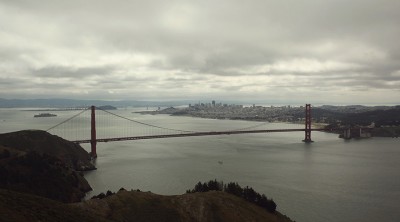Oakland Sues Monsanto for ‘Long-Standing Environmental Contamination’ of San Francisco Bay

Agrochemical giant Monsanto knowingly contaminated Oakland’s storm water and the San Francisco Bay with a highly toxic chemical for decades, a new lawsuit filed by the California city claims. Oakland wants the company to pay for the environmental cleanup.
The State Water Resources Control Board determined that the presence of highly toxic polychlorinated biphenyl (PCBs) in Oakland’s storm water threatens the San Francisco Bay’s ecosystem and interferes with the bay’s use and enjoyment by Californians, the city said in a statement.
PCBs were widely used for five decades to insulate electronics and were incorporated into paints, caulks and other building materials until they were banned by the US Environmental Protection Agency in 1979. Despite the 36-year prohibition, the chemicals are a common environmental contaminant in water and in the tissues of marine life all the way up the food chain to humans.
Monsanto knew that PCBs were toxic and could not be contained as they readily escaped into the environment, finding their way into bays, oceans, lakes, rivers, streams, soil and air,” the statement read. “Although evidence confirms that Monsanto recognized that PCBs were becoming ‘a global contaminant’, well before the 1979 ban, it concealed this information and increased production of these profitable compounds.
Oakland and Alameda County could be forced to spend $1 billion to remove PCBs from storm water flowing into San Francisco Bay, the city said. The lawsuit is asking Monsanto to bear the costs of cleaning up the contamination.
“The company that is responsible for this vast contamination should bear the burden of cleaning up our environment, not the taxpayers of Oakland and California,” City Attorney Barbara J. Parker said in a statement.
“Monsanto knew that its products posed a significant threat to human and environmental health around the world,” she added. “However, the company chose profits over protecting people, and American cities and citizens are still suffering the consequences.”
Other California cities such as San Jose and San Diego have filed similar lawsuits against Monsanto, as has Spokane, Washington.
It would not be unprecedented for Oakland to win its suit. In May 2012, Swiss agrochemical group Syngenta AG was forced to pay $105 million to settle a class-action case that claimed the company knowingly poisoned hundreds of community drinking water systems across the United States with its weed killer atrazine.
The agrochemical giant has a history of poisoning and polluting. In February 2012, A French court ruled that Monsanto was guilty of unintentionally poisoning a French farmer with its chemicals, setting a French precedent for pesticide-poisoning. Two months later, farmers in Argentina sued the company, claiming it knowingly poisoned farmers after pressuring them to use Monsanto’s chemicals.
In November 2014, Monsanto was forced to pay $2.4 million to settle a lawsuit with US wheat farmers after its genetically engineered strain Roundup Ready, which was supposedly outlawed and scrapped a decade ago, was found alive and well in Oregon in 2013. It also settled seven other class-action suits over similar incidents without admitting any liability.
Monsanto also produced the infamous Agent Orange, an herbicide used during the Vietnam War that caused a myriad of illnesses and disabilities in people exposed to the chemicals, including thousands of US military personnel. In 2012, the company agreed to compensate residents of the West Virginia town where its Agent Orange plant was located. Under the settlement, Monsanto consented to pay $84 million for a 30-year monitoring program in Nitro, West Virginia and $9 million towards property clean-up efforts in still-contaminated cities.
The World Health Organization said that there was “convincing evidence” that glyphosate, a chemical in Roundup, causes cancer in lab animals, and classified the world’s most widely used herbicide as “probably” carcinogenic to humans in March. Monsanto immediately rejected the organization’s conclusions as ”a dramatic departure from the conclusion reached by all regulatory agencies around the globe.”
The company is currently involved in a lawsuit filed by two US agricultural workers at the end of September. They claimed that Roundup caused their cancers, and accused the biotech giant of pressuring regulators to downplay the risks from its herbicide.

